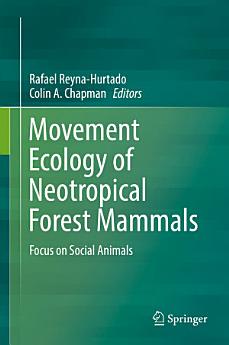Movement Ecology of Neotropical Forest Mammals: Focus on Social Animals
About this ebook
About the author
Rafael Reyna-Hurtado is a Mexican biologist that has studied tropical ungulates since 1997 in Mesoamerica and Uganda. Rafael obtained a Master degree and PhD degree in Wildlife Ecology and Conservation in University of Florida. He also conducted a three years postdoctoral study in McGill University, Montreal, Canada with focus in Africa terrestrial mammals. Rafael has published more than 60 articles among scientific papers, book chapters and public contributions. Rafael has focused on the study of the movement ecology of a social species, the white-lipped peccary in the Calakmul forest of Mexico. Rafael is a professor of El Colegio de la Frontera Sur in Campeche city, Southern Mexico where he has formed a team of highly qualified students that are conducting studies in movement patterns of tropical ungulates in all Mesoamerica.
Colin A. Chapman is a professor of Department of Anthropology of McGill University who has published more than 400 scientific papers and has extensively studied primates socio-ecological relationship. Colin has experiences in Costa Rica, Mexico but has focused the last 29 years to studied primates communities of Kibale National Park in Uganda in one of the longest studies in primates ever conducted.





